Annual DC Privacy Forum: Convening Top Voices in Governance in the Digital Age
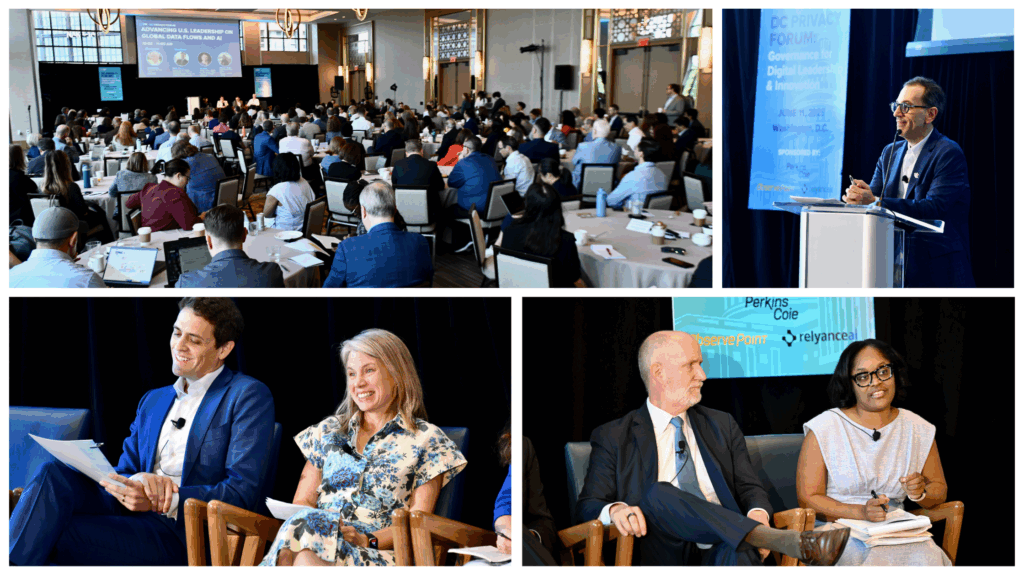
FPF hosted its second annual DC Privacy Forum: Governance for Digital Leadership and Innovation on Wednesday, June 11. Staying true to the theme, this year’s forum convened key government, civil society, academic, and corporate privacy leaders for a day of critical discussions on privacy and AI policy. Gathering an audience of over 250 leaders from industry, academia, civil society and government, the forum featured keynote panels and debates on global data governance, youth online safety, cybersecurity, AI regulation, and other emerging digital governance challenges.
Cross-Sector Collaboration in Digital Governance
FPF CEO Jules Polonetsky began the day by delivering opening remarks emphasizing the importance of cross-sector collaboration among senior leaders in privacy, AI, and digital governance. His message was clear: supporting valuable, societal uses of data requires voices from across industries and sectors working together.
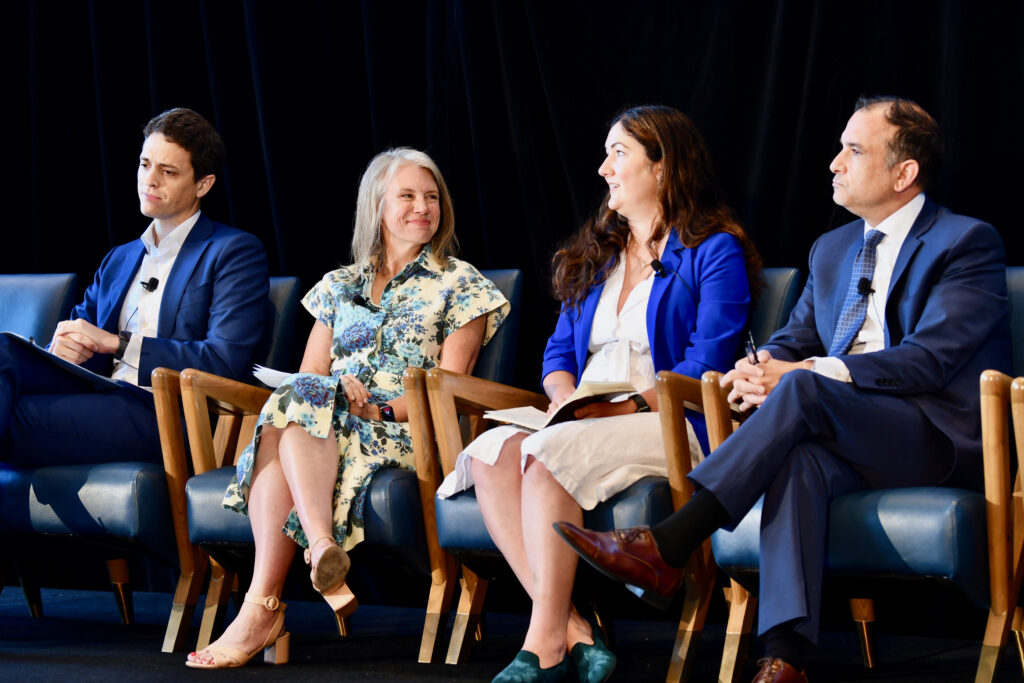
After welcoming the audience, Polonetsky turned to the opening panel “The Path to U.S. Privacy Legislation: Is Data Protection Law the Real AI Regulator?” featuring Dr. Gabriela Zanfir-Fortuna, FPF’s Vice President of Global Privacy, and Keir Lamont, FPF’s Senior Director for U.S. Legislation, Meredith Halama, Partner at Perkins Coie, and Paul Lekas, Senior Vice President and Head of Global Public Policy and Government Affairs at the Software Information Industry Association (SIIA). The discussion explored how existing data protection laws function as de facto AI regulators, highlighting renewed bipartisan efforts toward federal U.S. privacy legislation, navigating persistent challenges like preemption and private rights of action, and how the evolving global landscape shapes U.S. approaches.
Global Leadership in Data Flows and AI
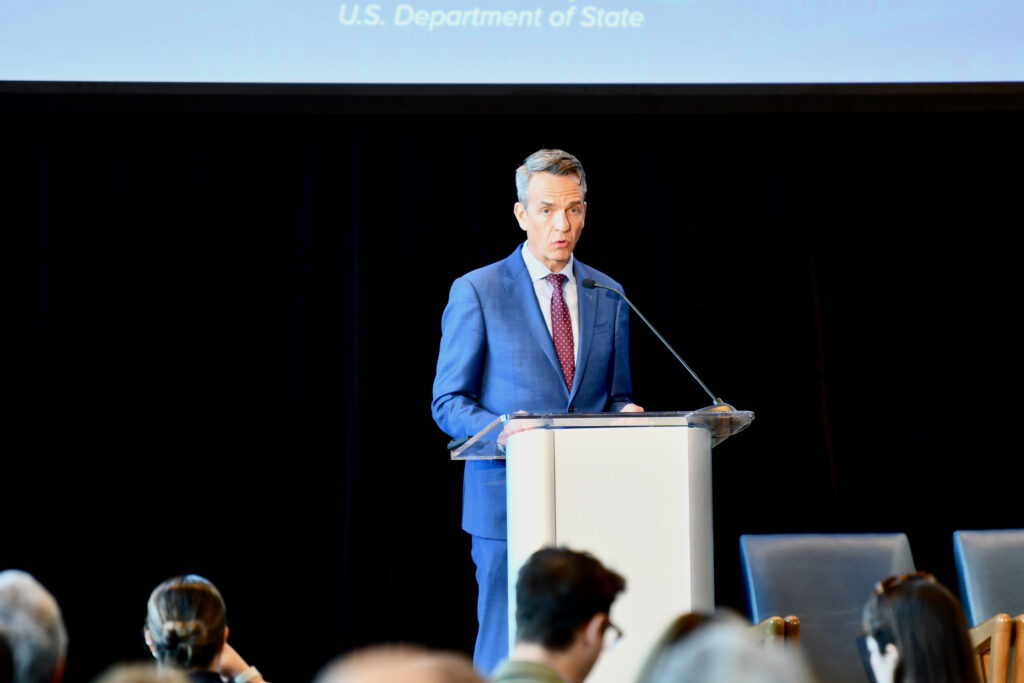
Continuing the conversation about the U.S.’s approach to regulating global data flows, Ambassador Steve Lang, U.S. Coordinator for International Communications and Information Policy at the U.S. Department of State, provided the opening remarks for the next panel, “Advancing U.S. Leadership on Global Data Flows and AI.” In his speech, Ambassador Lang emphasized the importance of cross-border data flows, arguing that trust depends on protecting data wherever it moves.
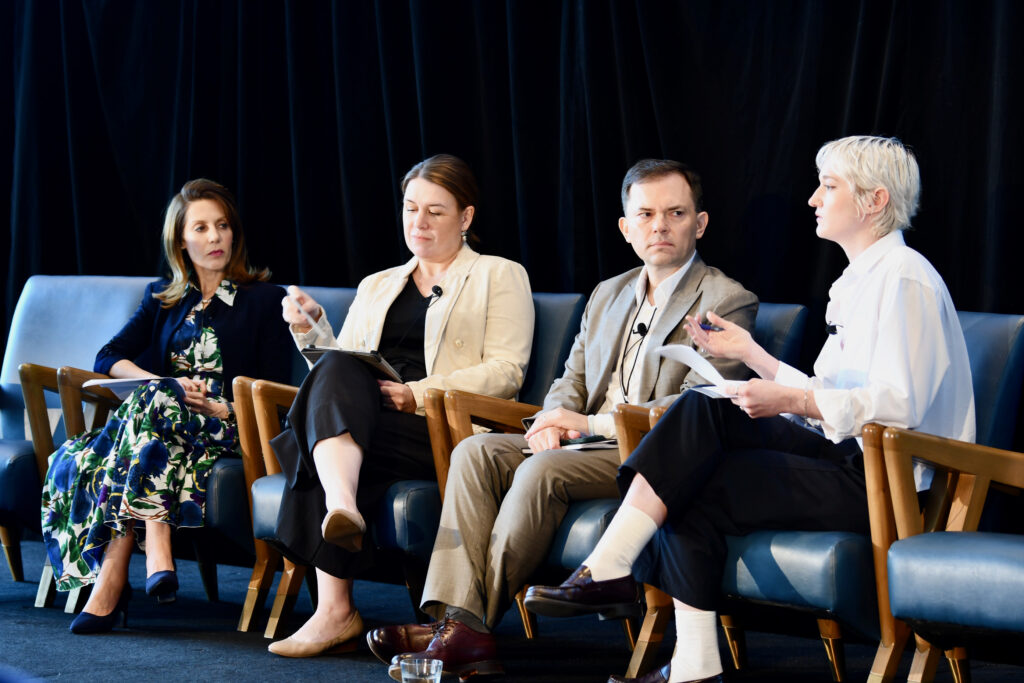
From there, Morning Tech Reporter at Politico, Gabby Miller, moderated an insightful discussion between Kat Duffy, Senior Fellow for Digital & Cyberspace Policy at the Council on Foreign Relations, Maryam Mujica, Chief Public Policy Officer at General Catalyst, and Pablo Chavez, Adjunct Senior Fellow, Technology and National Security Program at the Center for a New American Security (CNAS). Focusing specifically on how the United States’ role in global data flows and AI has shifted under the new administration, the panel examined how different strategies in digital governance between past and present administrations have had varied impacts on innovation.
The State of AI Legislation: Federal vs. State Approaches
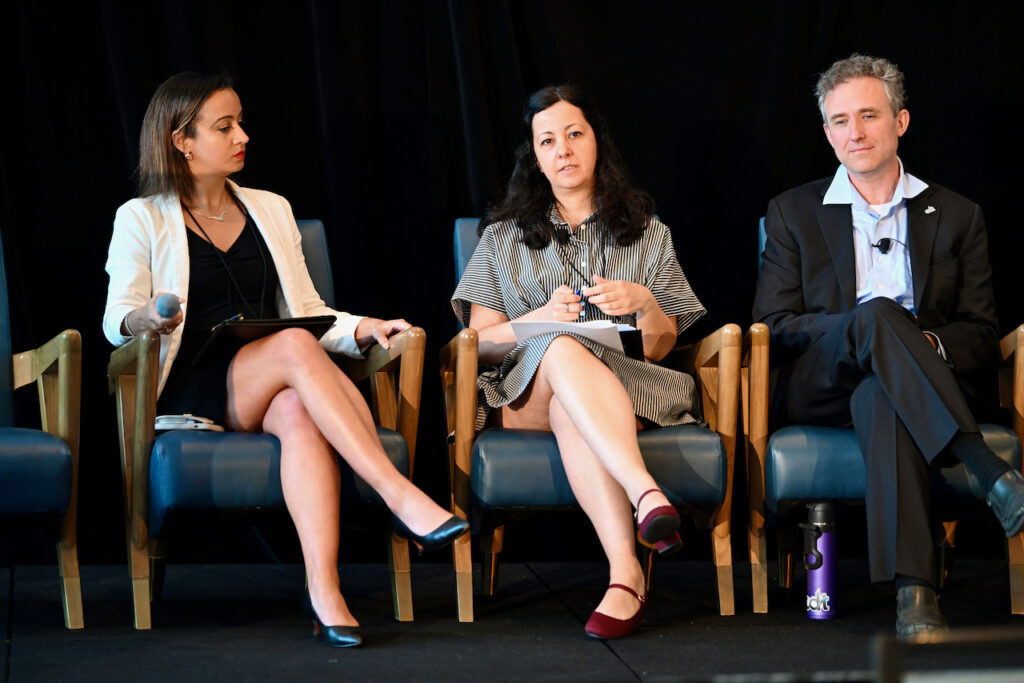
Following a coffee break, FPF Director for U.S. AI Legislation, Tatiana Rice, moderated “AI Legislation – What Role for the States,” with participants Dr. Laura Caroli, Senior Fellow, Wadhwani AI Center, at the Center for Strategic and International Studies (CSIS), Travis Hall, State Director at the Center for Democracy & Technology, Jim Harper, Nonresident Senior Fellow at the American Enterprise Institute, and Shaundra Watson, Senior Director, Policy at the Business Software Alliance. The panelists explored states’ differing roles in regulating AI, from acting as a laboratory of democracy, as Wall argued, to upholding constitutional separation of powers between federal and state law, as Harper noted. The panelists agreed that transparency and accountability remain top of mind for businesses and regulators alike.
Diving Deep into AI Agents: Opportunities and Challenges
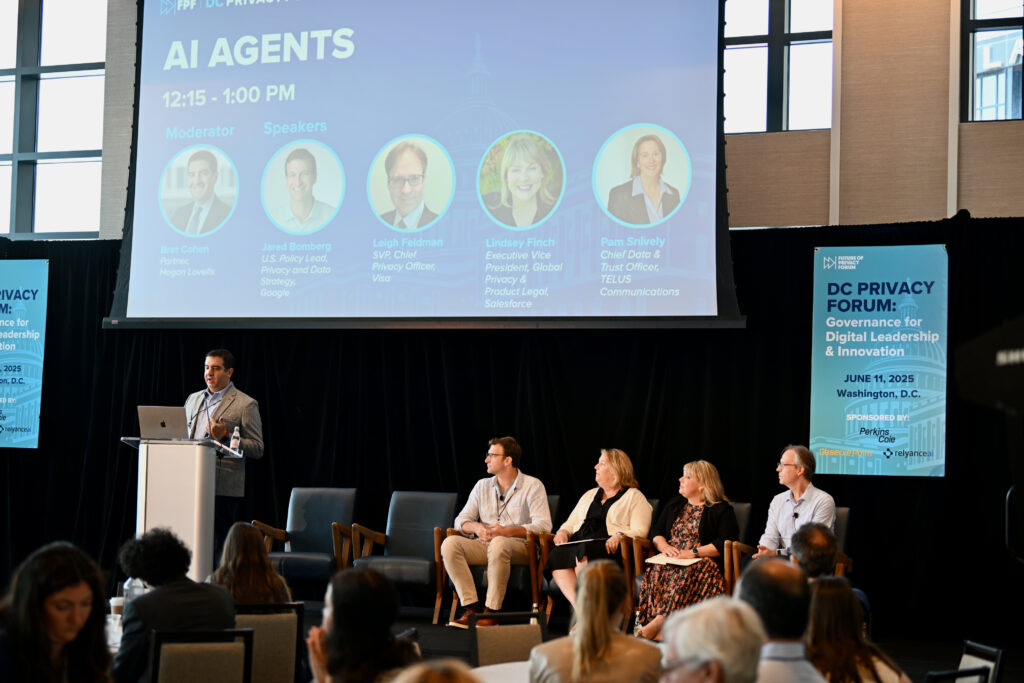
Staying on the topic of AI, the next panel, moderated by Bret Cohen, Partner at Hogan Lovells Privacy and Cybersecurity Practice, unpacked the subject of AI agents. The panel featured industry experts including Jarden Bomberg, U.S. Policy Lead for Privacy and Data Strategy at Google, Leigh Feldman, Senior Vice President and Chief Privacy Officer at Visa, Lindsey Finch, Executive Vice President of Global Privacy and Product Legal at Salesforce, and Pamela Snively, Chief Data and Trust Officer at TELUS Communications.
The conversation began by discussing the immense opportunities that agentic AI will make possible before moving into a more nuanced discussion about the privacy, governance, and policy considerations developers must address. The panelists agreed that risk management remains a top priority when developing agentic AI at their organizations. However, as Snively noted, the rewards will likely outweigh the risks.
Competition Meets Privacy in the AI Era
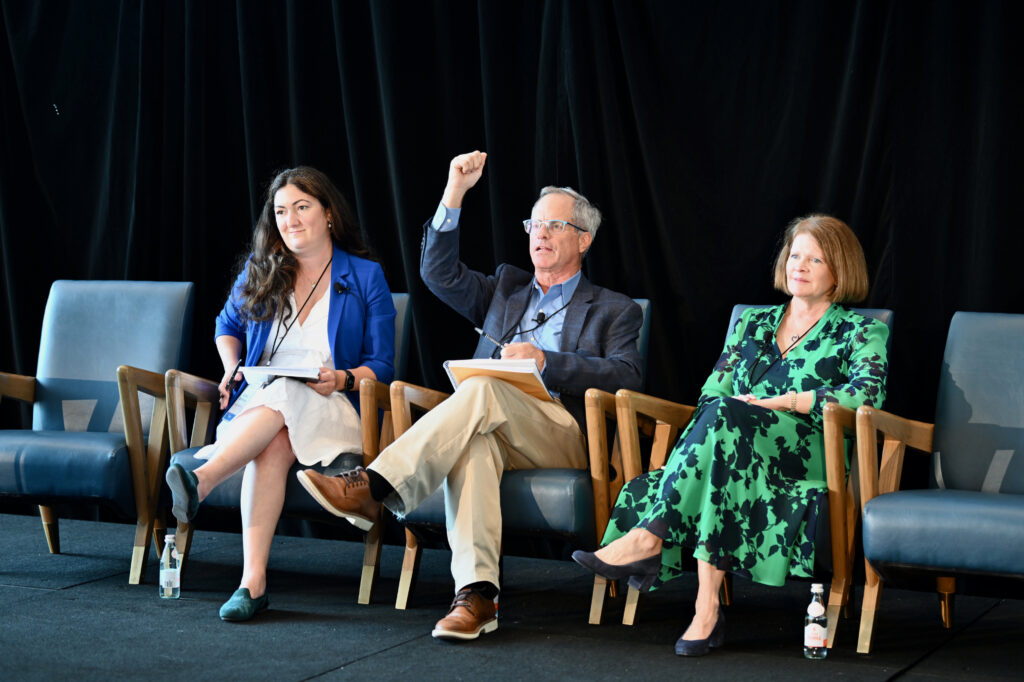
After a networking lunch, attendees retook seats for the event’s second half. Moderator Dr. Gabriela Zanfir-Fortuna, FPF’s Vice President for Global Privacy, welcomed back everyone for “Competition/Data Protection in an AI World.” Joined by Maureen Ohlhausen, Partner at Wilson Sonsini and Peter Swire, FPF Senior Fellow, and J.Z. Liang Chair at the Georgia Institute of Technology, this panel asked discussants to consider the key intersection between privacy and competition in the age of AI, focusing specifically on how regulators can empower users to protect privacy and ensure fair competition.
The discussion highlighted a key regulatory challenge –while antitrust policy often favors openness, this approach can create privacy and security risks. Swire argued that regulators must find ways to make privacy enforcement a dimension of market competition. Ohlhausen then noted that sometimes privacy protection laws can unintentionally affect competition. AI, she added, is like the “pumpkin spice of privacy,” referring to the trend of inserting AI into privacy conversations even where it might not directly apply.
The Big Debates: Experts Go Head to Head
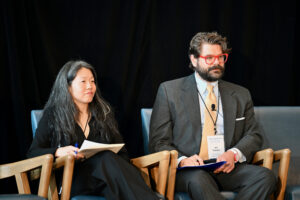

The energy in the room lifted as FPF’s Senior Director for U.S. Legislation, Keir Lamont, revved up the crowd for “The Big Debates.” This event’s debate-style format allowed the audience to participate via real-time voting before, during, and after the debaters’ presentations.
Debate 1: “Current U.S. Law Provides Effective Regulation for AI”
Will Rinehart, Senior Fellow at the American Enterprise Institute, argued in favor of the statement, stating that existing U.S. law comprises adaptable legal frameworks, sector-specific expertise, and enforcement grounded in legal principles. He argued that the U.S. needs better enforcement complemented by additional resources for enforcers instead of creating a more robust law.
Leah Frazier, Director of the Digital Justice Initiative at Lawyers’ Committee for Civil Rights Under Law, disagreed, arguing that current U.S. law does not address various risks that AI poses, including privacy, security, and surveillance risks associated with collecting massive amounts of data used to train AI models.

The audience strongly opposed the general premise in the initial vote, but the debate’s winner was determined based on the percentage of votes each debater lost or gained throughout the discussion. Rinehart emerged victorious, increasing support for the premise from 25% to 34% of the audience votes.
Debate 2: “Sensitive Data Can and Should Be Strictly Regulated”
Paul Ohm, a Professor of Law at Georgetown University Law Center, supported the statement, arguing that building laws around sensitive data reflects societal values and civil rights. Ohm continued, stating that U.S. law should target specific data categories previously unprotected for more inclusive and effective policymaking and to best protect marginalized groups.
Mike Hintze, Partner at Hintze Law PLLC, was charged with arguing the negative, highlighting that the effectiveness of laws focused on sensitive data is particularly flawed due to problems around definition and scope. What data is considered sensitive is context-dependent, making regulation over-inclusive for some and under-inclusive for others.

Again, the audience was in strong support of the general resolution, but Hintze won decisively, advancing the vote from 22% to 39% in support and earning an FPF Goat trophy.
Protecting Youth in Digital Spaces and Balancing Privacy and Cybersecurity
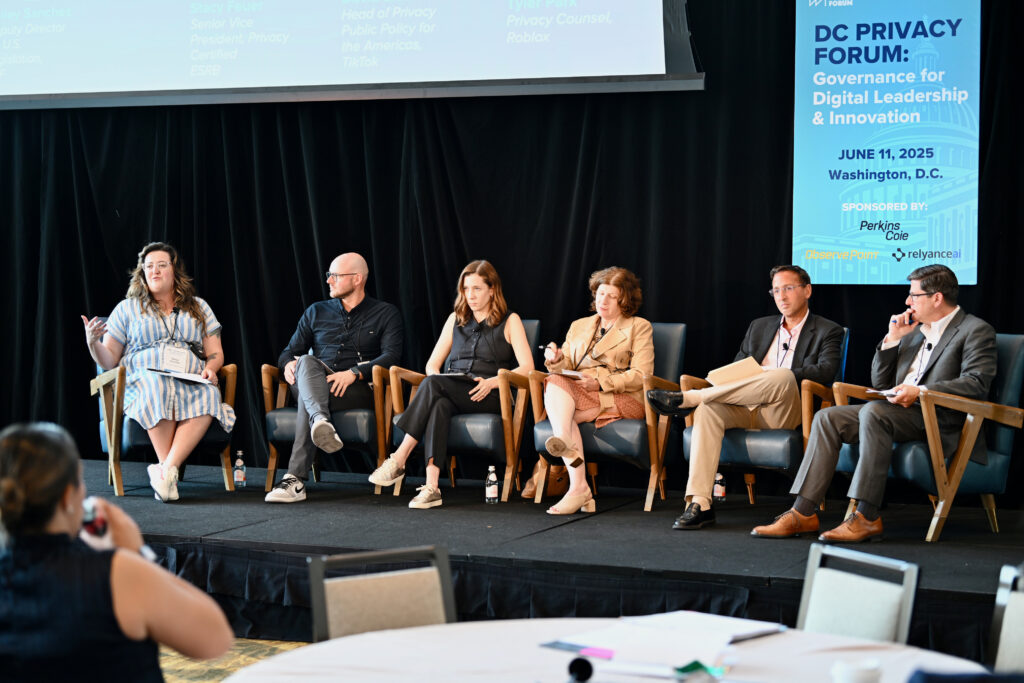
After refueling at another quick coffee break, audience members returned to the Waterside Ballroom for two final panels.
Moderated by Bailey Sanchez, FPF’s Deputy Director for U.S. Legislation, the “Youth Privacy, Security, and Safety Online Panel” invited key industry professionals in online youth entertainment to discuss the key protections being advanced worldwide to protect children and teens online.
Panel members included Stacy Feuer, Senior Vice President, Privacy Certified at The Entertainment Software Rating Board (ESRB), David Lieber, Head of Privacy Public Policy for the Americas at TikTok, Tyler Park, Privacy Counsel at Roblox, Nick Rossi, Director of Federal Government Affairs at Apple and Kate Sheerin, Head of Americas Public Policy at Discord. The discussion centered on the importance of built-in privacy defaults and age-appropriate design experiences. The panelists agreed that the future of protecting kids and teens online requires shared responsibility, flexible approaches, ongoing innovation, and collaboration between industry, policymakers, and youth themselves.
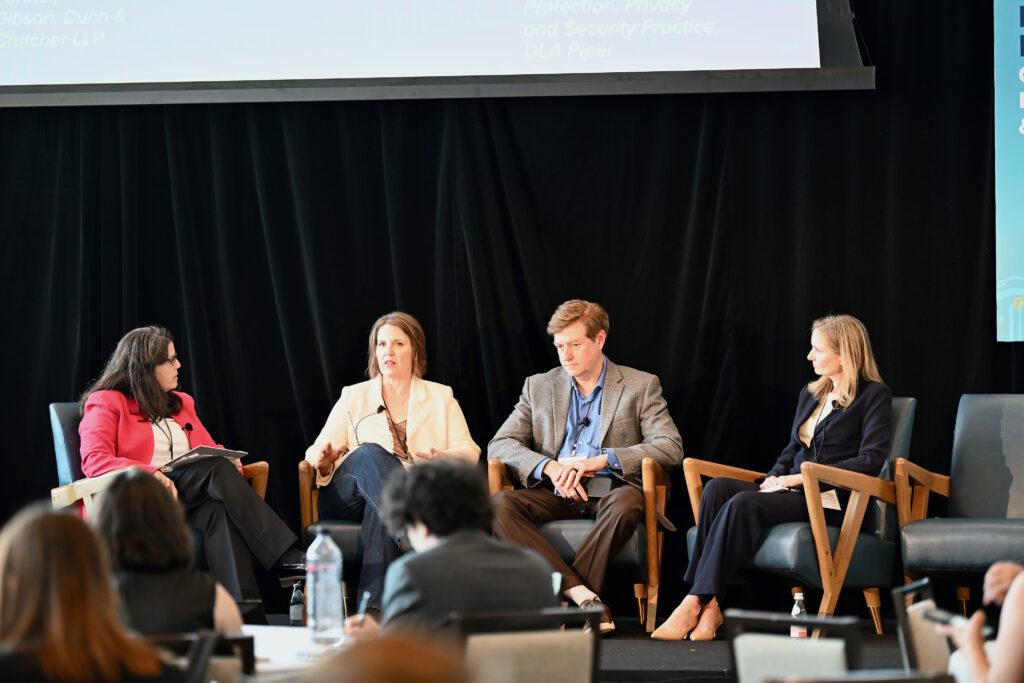
The day’s final panel, “Privacy/Cyber Security,” focused on the key points of conflict between online privacy and security values in regulations and at organizations. Moderated by Jocelyn Aqua, Data, Privacy & Ethics Leader at PwC, this discussion featured panelists occupying professional positions in the intersection of cybersecurity and privacy, including Emily Hancock, Vice President and Chief Privacy Officer at Cloudflare, Stephenie Gosnell Handler, Partner at Gibson, Dunn & Crutcher LLP, and Andy Serwin, Executive Committee Member at DLA Piper.
Looking Ahead
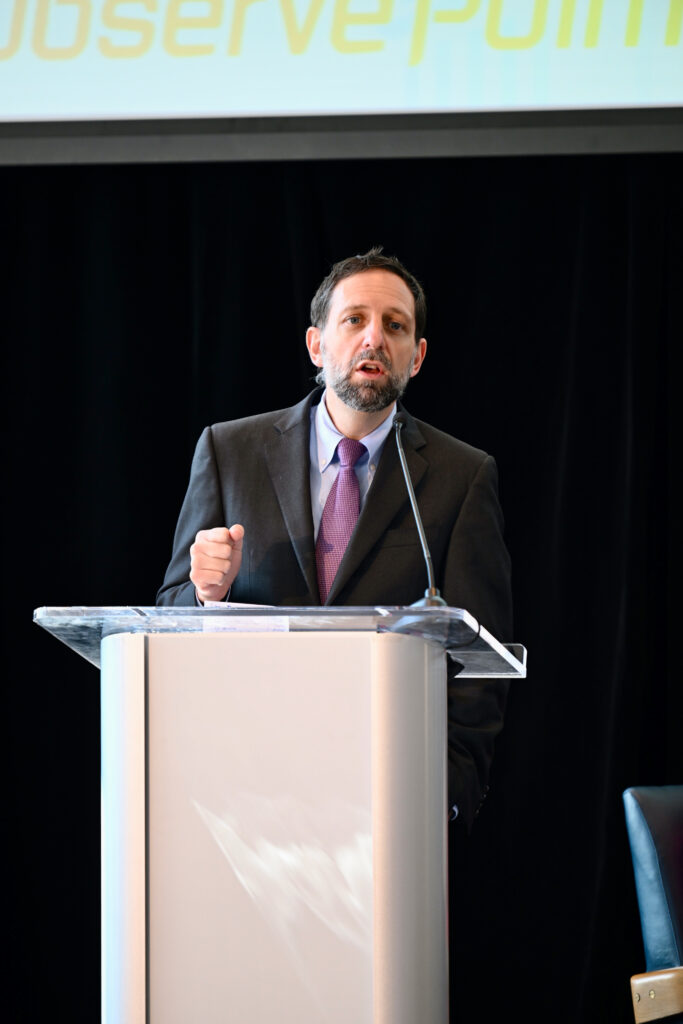
FPF’s Senior Vice President for Policy, John Verdi, delivered closing remarks, thanking attendees for a full day of thoughtful and inspiring conversations. The forum successfully demonstrated that addressing digital governance challenges requires diverse perspectives, collaborative approaches, and ongoing dialogue between all stakeholders.
Thank you to those who participated in our Annual DC Privacy Forum: Governance for Digital Leadership and Innovation! This year’s DC Privacy Forum was made possible thanks to our sponsors RelyanceAI, ObservePoint, and Perkins Coie.
We hope to see you next year. For updates on FPF work, please visit FPF.org for all our reports, publications, and infographics, follow us on LinkedIn, Instagram, Twitter/X, YouTube, and subscribe to our newsletter for the latest.
Written by Celeste Valentino, FPF Comms Intern
